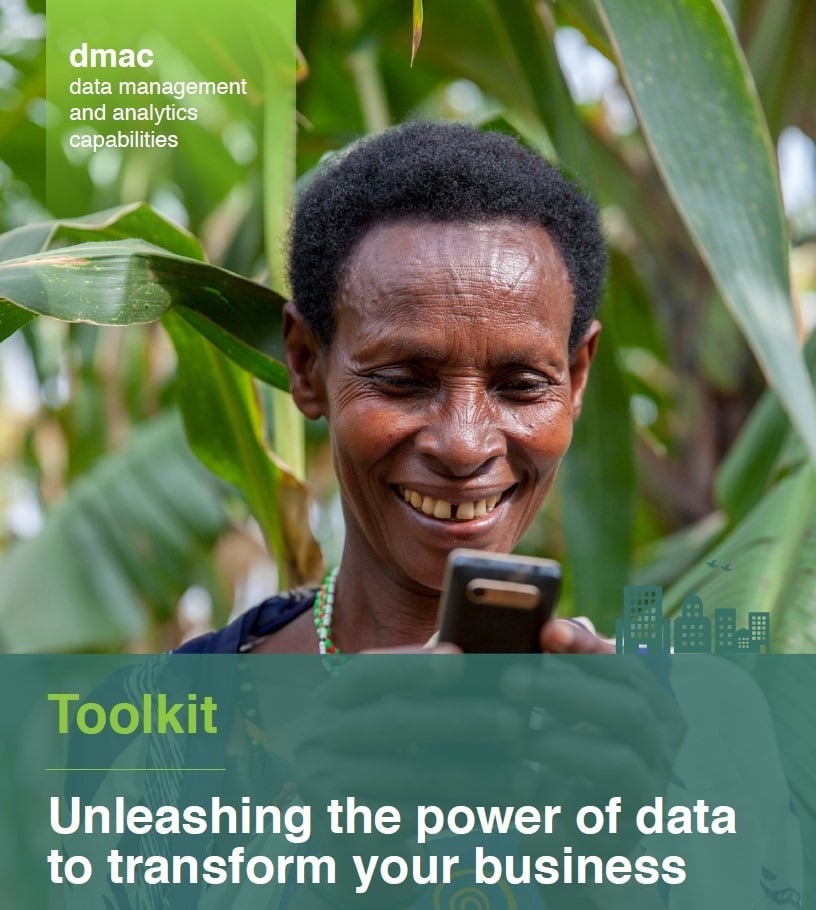
Market facilitation (M4P) is an approach to promote systemic change—change that goes beyond individual players and that is relevant to the wider environment, affecting many. Market systems development requires that organisations play a facilitating role. Standing outside of the market system, facilitators work with different players within the system, to make it work more effectively. Their essential role is active and catalytic, to enable others to do rather than do themselves—stimulating changes in a market system without becoming part of it.
Understanding this concept and applying it in market systems development initiatives is no mean feat. Market facilitators, donors and practitioners must draw from a wide range of tools and techniques to put market facilitation into practice. Developing and maintaining partnerships, managing risks, deploying flexible intervention tactics, establishing a measurement system and communicating effectively are all useful learning points for those working in this field. Knowing when to exit an intervention is just as critical as identifying and selecting the right partners to work with and understanding these complexities can have an impact on the effectiveness of interventions. Market facilitation as a practice is more of an art than a science, directed by principles rather than lists of actions, which can make it difficult to translate the theory into practice.
There is limited evidence from the field on how to apply this approach in a way that ensures interventions are both scalable and sustainable. In June 2015, FSD Africa commissioned the Springfield Centre to produce: a) one
comprehensive case study of FSD Kenya—a financial market facilitation agency in Nairobi, Kenya; and b) six minicase studies of financial market facilitation interventions from the wider FSD Network, by the FinMark Trust, FSD Kenya, FSD Tanzania and FSD Zambia. The aim of this process was to build the knowledge base around the art of market facilitation in the field. These case studies revealed a lot of insights about effective market facilitation, the challenges the Financial Sector Deepening (FSD) Network faced while designing and delivering interventions using the M4P approach and the lessons they have learned so far.
The M4P synthesis paper (this publication) explores the art of market facilitation in action through the lens of the FSD network and synthesises learnings gained from these case studies to build understanding around the M4P approach. The paper examines the wider lessons and challenges that emerge for organisations addressing the dilemmas of developing financial markets for the poor and how they differ significantly from other conventional approaches.

With more data being created at a faster rate than ever before, it can be hard for financial service providers (FSPs) to know what to do with the plethora of data available to them. FSPs are capturing large amounts of data on their internal systems and also have access to external data – as a result of improved connectivity and increasing smartphone penetration, as well as through publicly available external data (e.g. national surveys).
However, many FSPs are not making full use of this data as they may not understand its full potential, have information overload, inefficient processes and systems, and think it is expensive to make use of data. The toolkit aims to help FSPs understand the different data sources available to them and how to use them effectively to transform their business.
Although primarily aimed at FSPs, the toolkit may also be of use and interest to those who provide services to FSPs in their respective markets (such as data management and research firms) and other organisations wanting to implement programmes that encourage FSPs to make more and better use of data.
The toolkit draws on the valuable learning gained through the Data Management and Analytics Capabilities (DMAC) programme that uses data-driven evidence to help FSPs in sub-Saharan Africa to design inclusive and affordable financial products and services that respond to the needs of unserved and under-served adults, with a particular focus on women and youth.

To reduce the vulnerability of poor women and men, FSD Zambia (and FinMark Trust beforehand) has undertaken to design and deliver a package of interventions to catalyse the microinsurance market in Zambia. This case study focuses in particular on the establishment of a multi-stakeholder Technical Advisory Group (TAG) to provide leadership and coordination in the industry, and act as a channel for interventions.
The TAG approach is based on the assumption that engaging relevant industry stakeholders is the most effective way to ensure relevance and ownership of a change agenda in a nascent market’s growth. Zambia’s approach is considered a demonstration case which forms the basis for replication in several other countries.
FSD Zambia’s experience in the microinsurance market demonstrates the importance of building industry leadership and coordination in an industry to drive market development. The strong technical knowledge and experience of FSD Zambia’s microinsurance team has provided a platform for conducting analysis and generating insights and lessons.
It has also drawn on its exposure to wider trends and resources, for example the ILO’s Impact Insurance Facility and other microinsurance initiatives across Africa, to stimulate cross-learning and innovation among Zambian market players. Using different communication channels and information products have also helped foster trust and the emergence of a cohesive voice for the microinsurance industry.


